Solidigm has a massive new SSD. Dubbed the Solidigm D5-P5336, the new drive spans U.2, E3.S, and E1.L form factors and is aiming to stick it directly to hard drives where it matters: capacity. These new drives are able to reach 61.44TB in either the 2.5″ or E1.L form factors greatly increasing storage density in servers.
The Solidigm D5-P5336 is a Massive 61.44TB SSD Coming this Quarter
Here is the quick highlight of the U.2, E3.S, and E1.L form factors. The E3.S will only scale to 30.72TB, but that is still a higher capacity than modern hard drives at only a 7.5mm thickness.
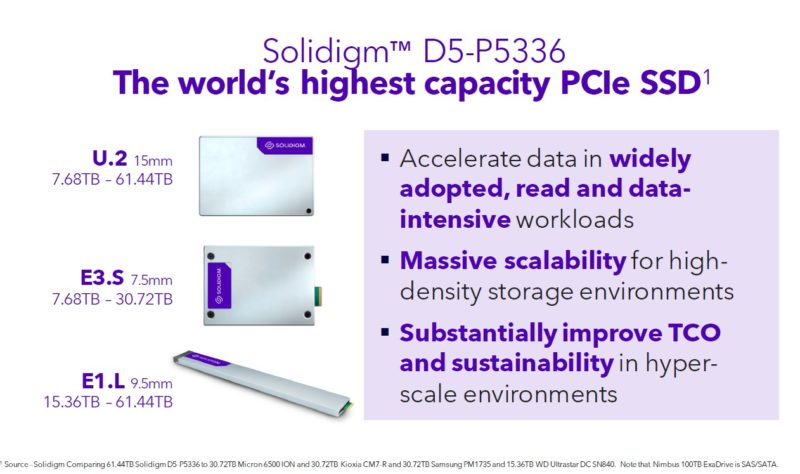
Since we are talking about EDSFF, you can see our guide that covers E3.S, E1.S, E1.L, and more in E1 and E3 EDSFF to Take Over from M.2 and 2.5 in SSDs.
Part of Solidigm’s vision is to build a higher-capacity portfolio. For those that have more 4K random write performance needs, Solidigm has the D7-P5520 and D5-P5430.
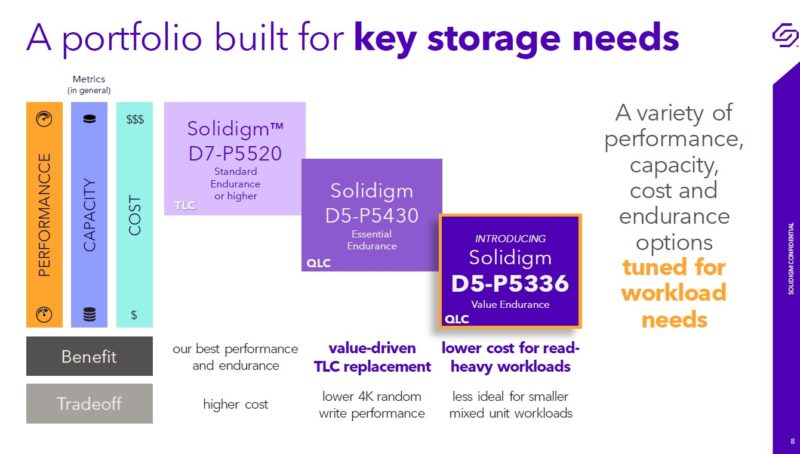
Part of this is that Solidigm is using 192-layer QLC NAND. As a result, some folks in the space immediately think that QLC is very slow compared to TLC and Solidigm is trying to show that in a different light. Still, Solidigm is doing a lot on the controller and drive design side to mitigate slower media while increasing capacity.
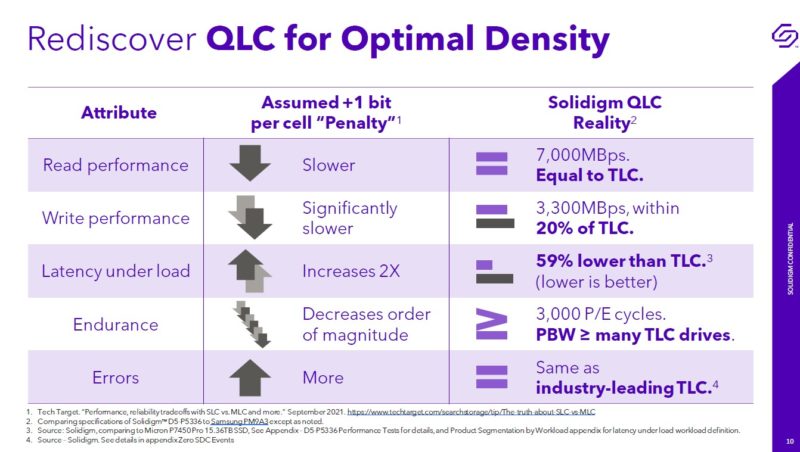
The big feature of this is that the minimum and maximum capacities are double that of the D5-P5430.
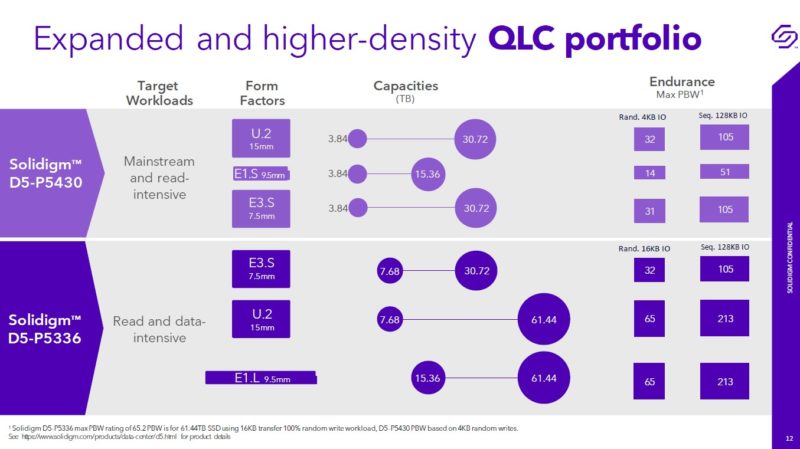
Here is the overview slide with the key specs. Although many say QLC endurance is low, the 61.44TB drive, just by virtue of the capacity, can end up handling 65.2PBW which is enormous. Most of these large drives are being used as a capacity tier, so that is a write-infrequently read often model (think storing video at an edge CDN node.)
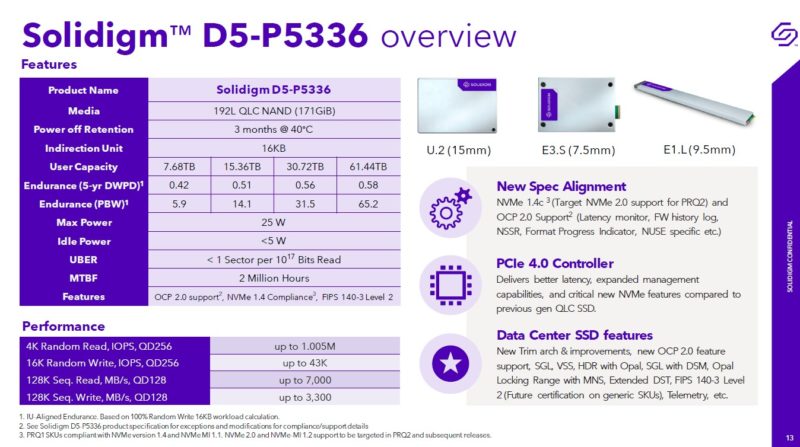
Solidigm is doing something here that we want to point out. Those endurance figures are not 4K random writes. Instead, they are 16KB random writes which aligns to Soldigm’s new 16KB indirection unit.
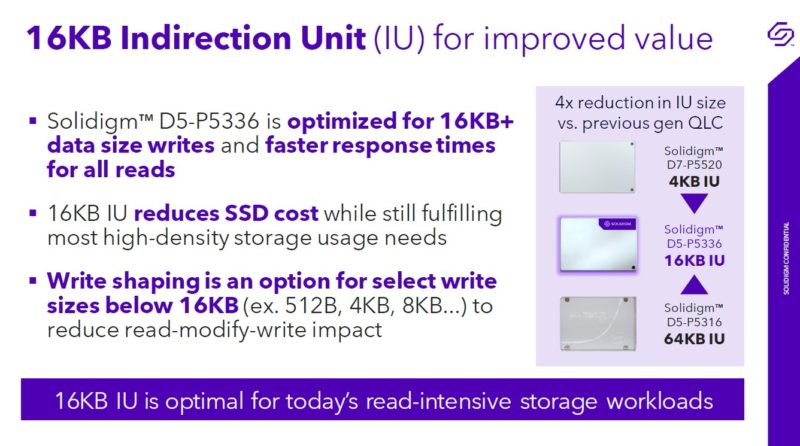
Solidigm has a chart on its competition. We will just point out again that on the endurance chart it is using the 16KB IU aligned random writes. Even at 14PBW on the Samsung PM9A3 at 7.68TB it is unlikely that endurance rating will be used.
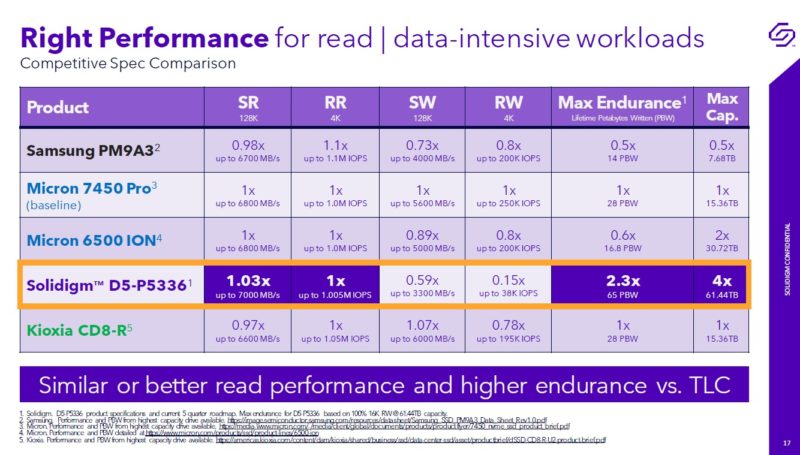
We think of this drive as a denser hard drive replacement with a SSD rather than a maximum-performance SSD. That is really the market Solidigm is going for.
Final Words
We will bring you full benchmarks of the drive in a few weeks. It is extremely cool to see that much capacity in a single drive. What we can say for now, and based on the slideware, is that this is a clear shot at hard drives being used to service edge storage, especially for video. A 10-bay 1U server with 2.5″ drives can have over 0.5PB of capacity and an E1.L server can have much more. What is more, the read/ write speeds to fill and access data on those drives is much better than hard drives and RAID arrays.

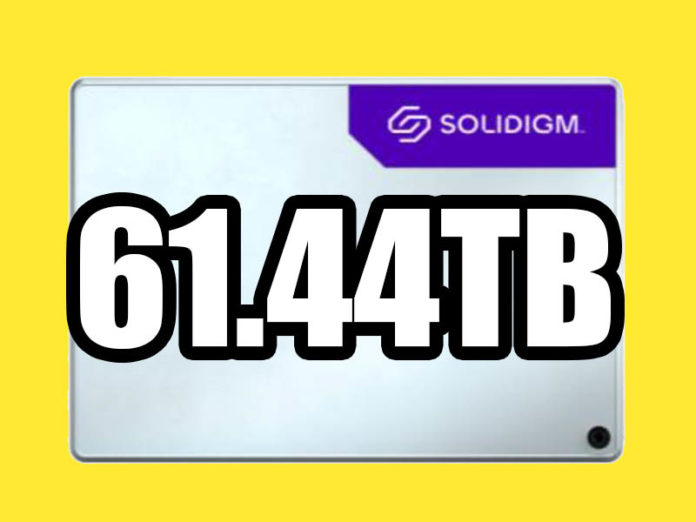

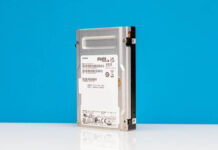
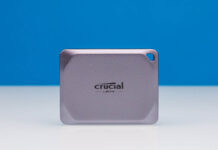
Any idea what the price per TB will be at these capacities?
At this rate we could see the 3.5″ HDD form factor return to popularity.
Naw, 3.5” is too limiting in the number of front panel bays, especially as 1U servers increasingly dominate.
QLC really is perfect for object storage at scale. The TCO can easily beat HDDs
This could be really exciting, except that Micron announced that 32 TB SSD back in January (https://www.servethehome.com/32tb-micron-9400-is-a-beast-pcie-gen4-nvme-ssd/) and unfortunately it’s both very rare and also last time I looked not very competitive on price. Hopefully Solidigm will do better. It will be interesting to see whether their purchase of Intel’s NAND business translates into reliable products too.
BFSSD